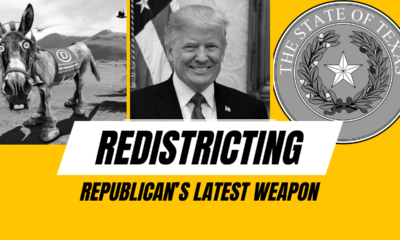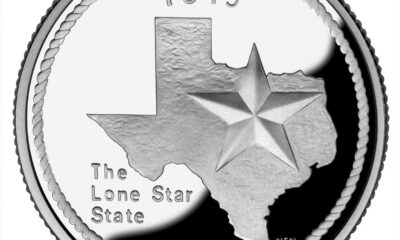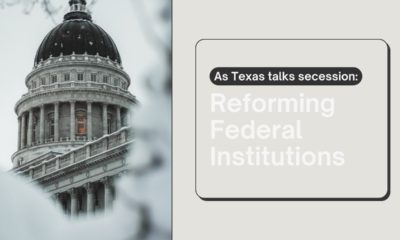Executive
Texit – if the vote were the other way
Suppose, instead of Texit, the question was Tex-Enter. Would Texans have valid reasons to join the Union, if today they were independent of it? Maybe not!

Yesterday, Mr. Dan Miller, head of the Texas Nationalist Movement, posed an interesting question. Suppose, he asked, Texas were an independent nation-state today. (Never mind how. Suppose it were.) Now suppose that, instead of a Texit Bill, a Tex-Enter bill were now before the Legislature. How, then, would you vote, and urge your Legislators to vote? Would you vote to join? Or stay out?
Texit Bill appears to stall
The Texas Independence Referendum Act is in the House Committee on State Affairs. But as of this posting, that Committee has yet to schedule a hearing on the bill.
To be sure, the State Affairs Committee has another, almost as important, bill before it. This other bill would authorize the Texas Legislature to raise its own funds to secure the Rio Grande. And it would charge the Texas Rangers with the mission to enforce the river as a border. Among other tasks, the Texas Department of Public Safety would repair the construction breaches in the wall along the northern shore of the Rio Grande.
In addition, the Texas Senate recently passed a bill to make Texas election law tighter than it already is.
These bills, important as they are, are delaying consideration of the Texit bill. That delay could become critical, as the Texas legislature adjourns sine die on 31 May. Which is less than 60 days away today. This leads many to suspect the Legislature of “chubbing,” or delaying a bill through procedural tactics. Or, as in this apparent case, simple avoidance.
Mr. Miller, obviously acutely conscious of the deadline, wants to move the bill forward. To do that he must raise the consciousness of the people of Texas. And he is asking precisely the right question at precisely the right time.
Details of the “Tex-Enter” question
At the beginning of his essay, Mr. Miller asks this:
Imagine for a moment that Texas is currently a self-governing, independent nation. It makes its own laws, controls its own borders, has its own currency, has its own trade deals with other nations, has full control over how, or even if, its citizens are taxed, and has full control over how that money is spent to address the challenges unique to its people. In short, you are just like the other 195 self-governing, independent nation-states in the world. You control your own destiny.
Now, imagine that the citizens of your independent, self-governing nation were asked to go to the polls and answer one question: “Should our State cease being an independent nation and become a State of the United States?”
Immediately he proceeds to list a set of facts that raise the question: why would they? They include:
- At least 180,000, or as many as 800,000, pages of Federal laws and regulations.
- 5,000 felony laws so confusing that they make everyone a criminal. (If you don’t have criminals, you make them. Ayn Rand understood that, too.)
- 440 separate Federal agencies, the missions of many of which overlap with little or no co-ordination.
In addition, Mr. Miller asserts that the federal government honors the Bill of Rights more in the breach than otherwise. To say nothing of deliberate attempts to abrogate those rights today, now pending in Congress.
Why didn’t Sam Houston see any of this?
Sam Houston, after he led the successful Texas War for Independence, never imagined governing an independent Texas. At the end of the war he presided over a largely agricultural and rural country. Texas had no industry to speak of, and especially no munitions or naval industry. And across the Rio Grande waited Santa Ana, thirsting for revenge after the humiliation Sam Houston dealt him at San Jacinto.
For that reason, Texas petitioned Congress for admission to the Union. Finally, under President James K. Polk, Congress granted that petition.
It seemed such a good deal at the time! The deal seemed especially good after the Mexican War. But fifteen years later, Texas tried to break away. The occasion was, of course, the War Between the States.
Remarkably, Texas suffered comparatively little in that War. It has no industry to destroy, and in any event Texas was never a major theater of war.
Times have changed. Today Texas has many industries. Oil and gas to start with, of course, but also aerospace: Lockheed-Martin’s F-16 plant, and SpaceX’ Starship proving ground. Texas will soon gain its own automotive industry, with Tesla’s “Gigafactory Austin” set to come on-line this May.
Could Texas have developed these industries while remaining independent? That question is irrelevant. The relevant question is whether the “deal” has soured. Events clearly show that it has.
Grievances that justify Texit
The U.S. Constitution requires the federal government to “guarantee to every State in this union a republican form of government.” The main features of the republic are:
- Multi-level government, with no level trying to micro-manage the affairs of any level below, and
- Rule of law
Rule of law goes to the very definition of “republic”: in Latin, Res publica – the Public Thing – the law.
So what do we see? The accession to the Presidency of one who might have obtained the office through fraud is a different debate. Let’s suppose that Joe Biden really did come to power through massive ticket-splitting, as his handlers assert. Let’s even suppose that the ticket splitters don’t (yet) realize what a mistake they made. Never mind! Texas has reason enough to regret the accession. For now the Congress has before it certain bills to:
- Strip from the several States all power over their own elections.
- Substitute fearfully lax rules that would remove all confidence in the justice of an electoral result.
- Take a step toward the confiscation of all firearms.
- Declare a person’s gender to be perpetually fluid.
And now the kicker: an “infrastructure bill” that includes $20 billion to tear down certain existing stretches of highway. Tellingly, the Federal Highway Administration already is moving to stop a highway expansion in Texas. Indeed they are about to sue Texas to stop the expansion.
A republic in name only
None of this is justifiable under any concept, either of the republic or of the Constitutional obligation of the federal government to guarantee that to the States. It destroys multi-level government by substituting micro-management. And it substitutes, for the rule of law, the rule of the mob.
Perhaps a highway planner, arbitrarily drawing his highway directly through an existing residential (or commercial or industrial) development, ought to negotiate a purchase of land in the path of that highway, with voluntary consent on both sides. But for the federal government to interfere—after decades of setting a precedent for letting highway projects move forward—constitutes breach of contract. First, “reasonable expectations,” having their basis on past behavior, count for much in contract law. Second, the exact workings of eminent domain should be for the State to decide.
Thus Dan Miller has an excellent argument. And he advances that argument at a time when Federal policy makes that argument a winner. Not only Texans but everyone should ask themselves whether the federal government is in breach of contract. If so, then Texit might not be the only valid secession movement or proposition.
List of earlier articles relating to Texas independence and readiness
Terry A. Hurlbut has been a student of politics, philosophy, and science for more than 35 years. He is a graduate of Yale College and has served as a physician-level laboratory administrator in a 250-bed community hospital. He also is a serious student of the Bible, is conversant in its two primary original languages, and has followed the creation-science movement closely since 1993.
-

 Accountability2 days ago
Accountability2 days agoWaste of the Day: Principal Bought Lobster with School Funds
-

 Constitution2 days ago
Constitution2 days agoTrump, Canada, and the Constitutional Problem Beneath the Bridge
-

 Executive19 hours ago
Executive19 hours agoHow Relaxed COVID-Era Rules Fueled Minnesota’s Biggest Scam
-

 Civilization18 hours ago
Civilization18 hours agoThe End of Purple States and Competitive Districts
-

 Civilization4 days ago
Civilization4 days agoThe devil is in the details
-

 Executive4 days ago
Executive4 days agoTwo New Books Bash Covid Failures
-

 Civilization3 days ago
Civilization3 days agoThe Conundrum of President Donald J. Trump
-

 Executive4 days ago
Executive4 days agoThe Israeli Lesson Democrats Ignore at Their Peril













[…] CNAV said earlier, Texas already has many grievances against the United States today. The overturning of the Election […]